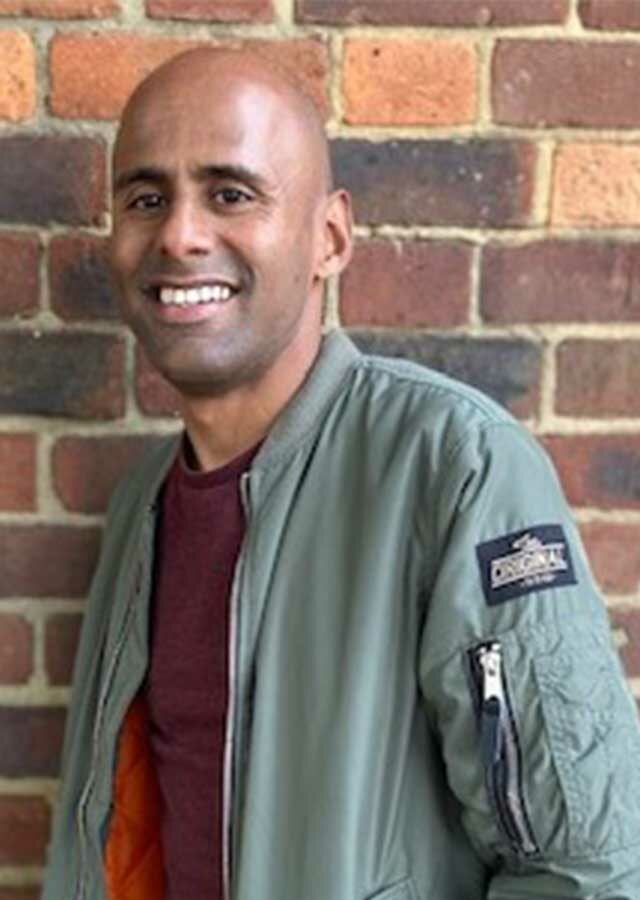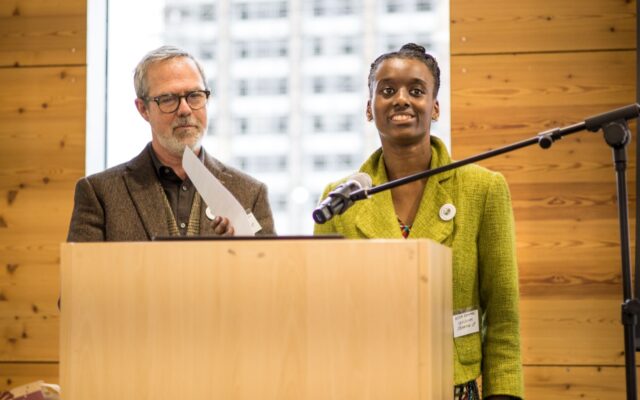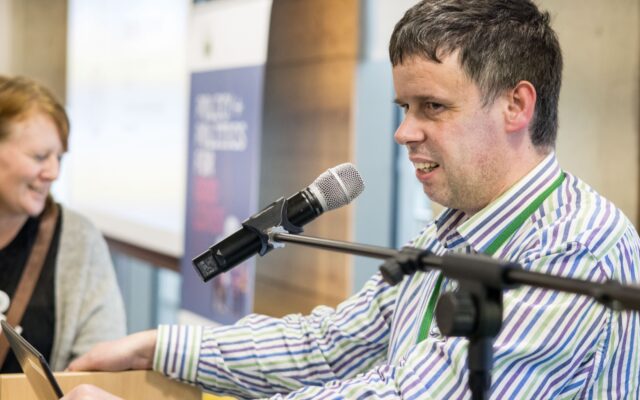This is the first thing I’m writing as a new columnist for Community Living, but it’s not the only thing I do.
I work in health and social care, in learning disability and mental health issues, and I’m a self-advocate and campaigner.
I’m really busy at the moment. I’ve got so many different jobs and I always get a lot of calls from people who want me to be part of their organisation.
I like being a kind of teacher, leading a group and understanding what makes a home for someone.
I get a lot of job opportunities and it’s hard to say no. This makes me feel quite excited, but also it can be overwhelming. Sometimes I overthink stuff and my work is always on my mind so it can be exhausting. I’m always trying to think: “How could this be done better?”
It’s important to relax and free your mind of worries. I do that by watching television or listening to music to get my mind off work.
Get the crowd going
One of my jobs is as a DJ with arts charity Heart n Soul, which is like a second family to me. The best gig I’ve done so far was for our 30th birthday at the Beautiful Octopus Club at the Southbank in 2016 when I just played anything the crowd wanted. It makes me feel excited and nice to have people from all diverse backgrounds enjoying music.
I’m also a quality checker (a person with experience of support services who is paid to check on such provision) for Choice Support, a self-advocate for Learning Disability England and a travel buddy for Roots and Shoots, a charity that helps young people in south London to be more independent.
I’ve also just finished a job as a researcher and advocacy group leader for Feeling at Home. That was a research project by King’s College London looking at what helps people with learning disabilities feel at home where they live.
I enjoyed this because it was about coming up with ideas on how to run the sessions. I loved getting to know people’s personalities and hearing about their interests and hobbies.
I liked being a kind of teacher, leading a group and understanding what makes a home for someone. I’m really committed to supporting other people to have a voice.
People hire me because they want someone who is keen and understands the challenges people have. I’m from a diverse background and know the ins and outs of mental health and learning disability.
I often wear my heart on my sleeve and I’m a caring person. I can think about other people who are in the situation I was in. That’s empathy.
We’re coming to the end of the year and I’m looking forward to what the next one brings. One thing I’d like to achieve is a better work/life balance. I feel motivated and excited about what’s next – I’m going to be an uncle again, and that’s going to be another new chapter for me.
My aim has always been to be financially stable. Work’s important.
I’ve always worked. I got my first pay cheque when I was 18 years old when I had a job as a play worker at an adventure playground for disabled kids in south London.
Before that, I did a lot of volunteering work in a cafe, a charity shop and as a football coach. I wasn’t worried that I’d be stuck in volunteering forever because I had a plan to build enough experience to get paid work.
I didn’t have the academic stuff to get to university. I went on a different path to my brothers and sister, but they gave me the ambition to work and earn my own money.
My aim has always been to be financially stable because I didn’t have money when I was growing up. Work’s important because you need to keep yourself busy, pay your bills on time and try to save money. Long term, if I have a family, I need a job. If I’m in relationship, I want both of us to bring something to it.
There should be more awareness that people want to work and need to work. But right now, only five per cent of working-age adults with a learning disability have a paid job. That is so shocking.
It’s partly because no one expects us to work. I went to a mainstream school with a special unit but there was no awareness or any sense of where I’d be in five years’ time – no career path.
I carved that out for myself because I could see what my brothers and sister were doing. Today, one is a doctor and the other three are teachers. They are proud of me and they know I’m passionate about what I do.
My dream job would be to give all the poor people houses, fix the economy and design houses for disabled people.
Although I love working, It would be amazing to be able to retire by the time I’m 50 years old, in another 15 years or so.





